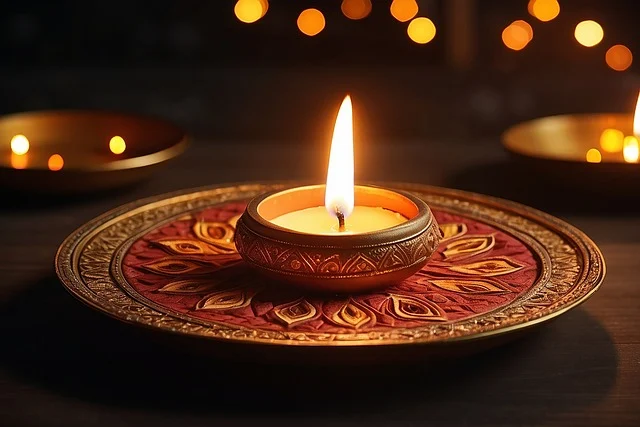
Throwing rice at weddings is a tradition that dates back to the early days of the ceremony itself. While many are accustomed to witnessing newlyweds pass through a gathering of guests who toss rice, the historical significance and profound symbolism of this custom are not widely known.
This act is frequently interpreted as a wish for good fortune; however, its roots and the meanings tied to it are far more intricate, embodying ancient beliefs and customs that have been transmitted through the ages. This article aims to delve into the hidden origins of the rice-throwing tradition at weddings and reveal the symbolic implications associated with it.
Historical Origins of Throwing Rice at Weddings
The practice of throwing rice at weddings has a history that spans thousands of years, with various cultures embracing this tradition for diverse reasons. Below is an overview of how this custom has evolved over time:
Ancient Fertility Symbolism
The act of throwing rice, or other grains, during wedding ceremonies can be traced back to ancient agricultural societies. In these communities, rice was viewed as a symbol of fertility, prosperity, and abundance.
Given that rice served as a staple food crucial for survival, it was believed to bestow good fortune and plentiful harvests upon the newlyweds. The act of throwing rice at a wedding was thought to bless the couple with fertility, thereby ensuring a fruitful and prosperous union.
For instance, in Ancient Rome, guests would toss wheat or barley at the bride and groom to wish them wealth and fertility. Over time, rice emerged as the favored grain in many cultures due to its connotations of abundance and prosperity, resulting in the widespread adoption of this tradition in Western weddings.
Cultural Practices Across the Globe
Although rice throwing is predominantly associated with Western weddings today, numerous cultures worldwide have analogous customs that involve the scattering of grains to signify a new beginning.
In Ancient India, rice was thrown to invoke blessings from deities, particularly for fertility and prosperity, and this practice was integral to several wedding rituals.
In China, it was customary to throw rice and other grains at the bride and groom as a representation of prosperity and abundance in their shared life ahead.
In Japanese culture, wedding rice cakes, known as “mochi,” are distributed to guests during the celebration to symbolize good luck and fortune for the couple.

Symbolic Significance of Throwing Rice at Weddings
The tradition of throwing rice at weddings varies across different cultures and regions, yet its symbolism predominantly pertains to fertility, prosperity, and good fortune. An examination of the meanings associated with rice reveals the following:
1. Fertility and New Beginnings
Rice has long been regarded as a symbol of fertility. In numerous ancient societies, grains were viewed as essential for a successful harvest, closely linked to concepts of growth and reproduction. The act of throwing rice at the newlyweds serves as a symbolic wish for fertility, signifying hopes for a family filled with children and prosperity. This belief remains relevant in various cultures, even in contemporary wedding ceremonies.
2. Prosperity and Abundance
As a fundamental agricultural product, rice has been associated with wealth and abundance in many traditions. In certain Asian cultures, the act of tossing rice not only signifies the bride’s fertility but also the couple’s financial well-being. The plentiful nature of rice is thought to promise a prosperous future for the newly married couple. Today, rice continues to symbolize affluence, success, and a life of plenty.
3. Blessings for the Couple’s Future
Throwing rice can be interpreted as a gesture of blessing. Guests express their wishes for a joyful and successful marriage filled with love, growth, and shared prosperity. The rice symbolizes good fortune, and as it is thrown, guests metaphorically envelop the couple in blessings for their new journey together.
4. Good Luck and Happiness
In various cultures, rice is considered a harbinger of good luck. It represents the couple’s future joy, as they are showered with the well-wishes of their loved ones. The act of throwing rice fosters a sense of community and support, conveying hopes for a blissful life together.
Why Does the Tradition of Throwing Rice Endure Today?
Despite evolving customs, the practice of throwing rice at weddings continues to thrive for several reasons:
1. Connection to Tradition
For numerous individuals, throwing rice at weddings is a beloved custom that links the couple to countless past brides and grooms. It serves as a means to honor the heritage of previous ceremonies and maintain traditions that have been handed down through generations.
2. Expression of Joy
The act of throwing rice symbolizes a communal celebration of love and happiness. This gesture of showering the couple with rice embodies the joy shared by friends and family, signifying the commencement of the couple’s shared journey. It is a festive occasion, with all attendees participating in conveying their best wishes to the newlyweds.
3. Cost-Effective and Accessible
Rice serves as an economical and readily available wedding favor for guests. This straightforward gesture requires neither costly materials nor extensive preparation, rendering it a practical and significant element of many wedding celebrations.
Read More: Diwali Diya? The Spiritual and Scientific Reasons Behind It
Conclusion: The Lasting Tradition of Tossing Rice at Weddings
The practice of tossing rice at weddings is a cherished and enduring custom with deep historical significance. It embodies themes of fertility, abundance, and good fortune, which continue to resonate with both couples and their guests.
Whether intended as a wish for luck, prosperity, or merely as a festive acknowledgment of new beginnings, the act of throwing rice remains a poignant gesture that has been cherished through the ages.
Thus, when witnessing a couple emerge amidst a cascade of rice at their wedding, it is important to recognize that this seemingly simple action carries centuries of cultural and symbolic importance, celebrating the joy of new life and the collective aspiration for a prosperous future.





Hiya, I’m really glad I have found this information. Nowadays bloggers publish only about gossips and internet and this is actually annoying. A good web site with interesting content, this is what I need. Thanks for keeping this website, I’ll be visiting it. Do you do newsletters? Can’t find it.